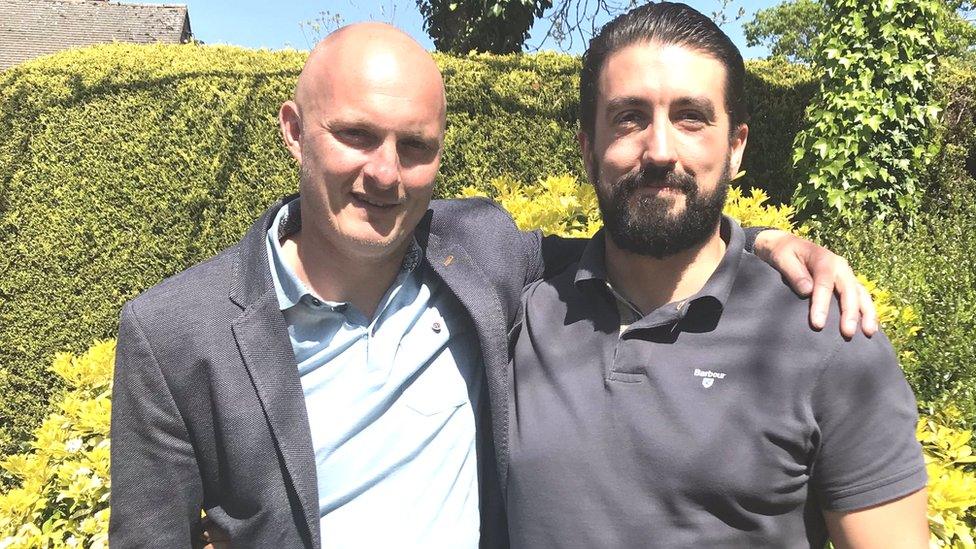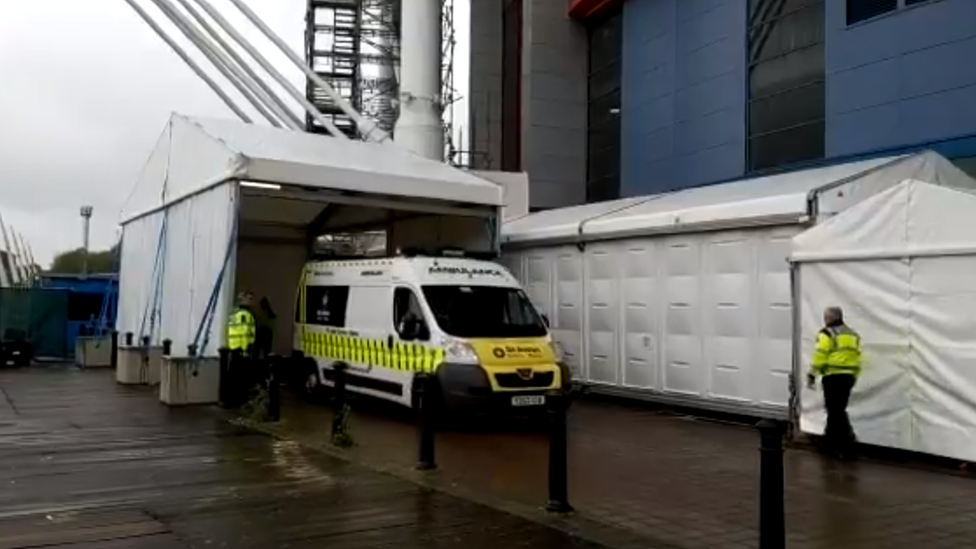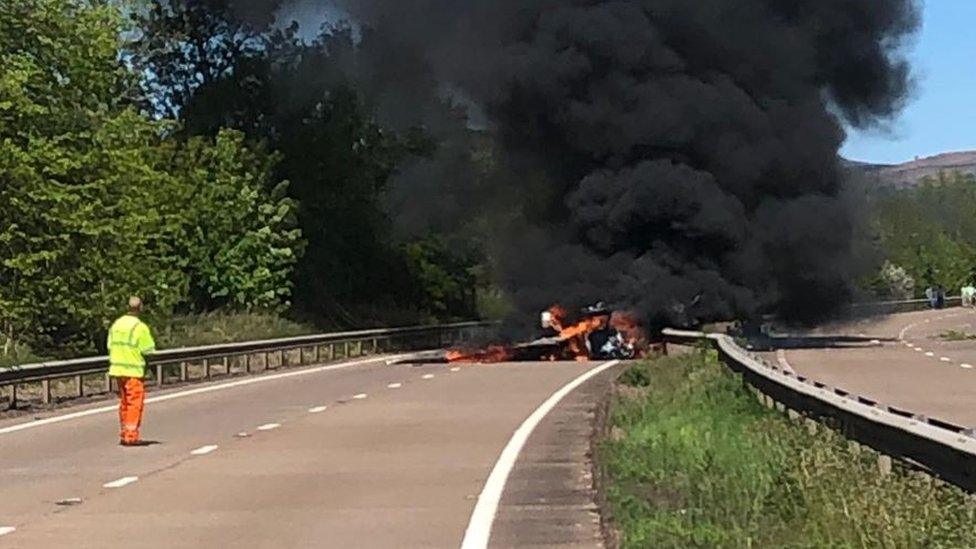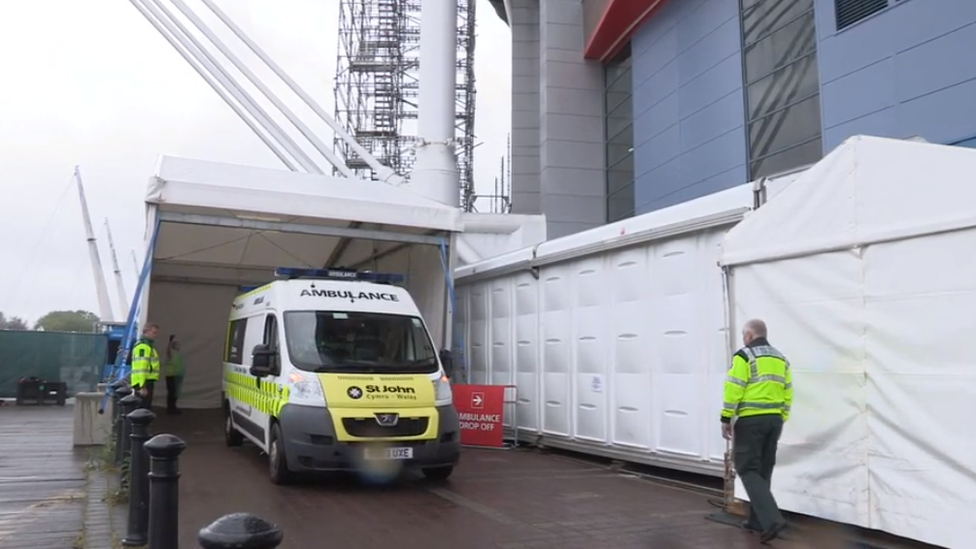Coronavirus: Plane crash rescue hero volunteers at hospital
- Published
'A few more seconds and it would have hit us'
The former army officer who helped save three people when their plane crashed last year is now working at the Dragon's Heart Hospital in Cardiff.
Joel Snarr was given a Pride of Britain Award for his heroic efforts after the light aircraft crashed on to the A40 in Abergavenny in May 2019.
The former bomb disposal expert is now running the portering team at the Dragon's Heart Hospital.
Cardiff's Principality Stadium, is now a 2,000-bed field hospital.
The home of Welsh rugby took its first patients earlier this week after being transformed to deal with the coronavirus pandemic.
"I was sat at home with my wife and my new baby daughter and I just came across the site that said the Dragon's Heart Hospital was being created," he said.
"I spoke to my wife and said I'd really like to help and that I'd apply for one of the portering roles. After a day or so I said I had some other skills and they said they would be interested. Now, I'm operations manager here."

Rescuers Daniel Nicholson and Joel Snarr, on the right, ran to the crashed plane to help
Of the plane crash last May, Mr Snarr described driving along the A40 and then "acting on instinct" when the plane crashed on the road.
"There was no build-up - I didn't hear it coming in - didn't see it come in - it just appeared - smoking and on fire," he added.
He and another passing motorist, Daniel Nicholson, helped pull three members of the same family from the burning wreckage.
Of the work at the Principality Stadium, he added: "It feels great to be a part of a project like this, everyone does acknowledge that it is such a shame that a project like this has to exist.

Ambulances have started bringing patients to the field hospital
"Everyone is really proud to be here but everyone would happily not be here if it wasn't needed."
He described the first two weeks being about setting up and working alongside constructors and NHS staff for preparatory work and now it is a "full live and a clinical site".
"If you take away that 20% of specialised training the armed forces gives you, you're still left with 80% of core skills that are completely transferrable," he said.
"The ex-military are particularly poor at selling themselves as they don't realise how transferrable those 80% of skills are. It's all good leadership, management, making decisions under pressure all those good things that we take for granted are invaluable here."
- Published13 May 2019

- Published29 April 2020
